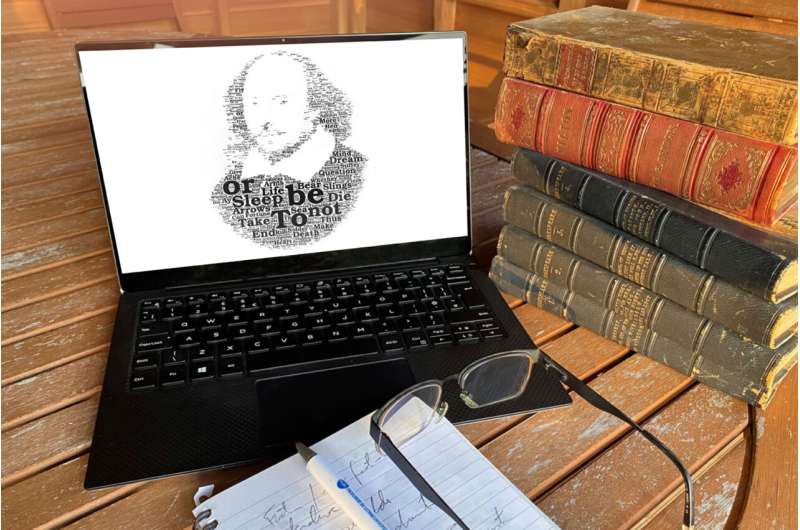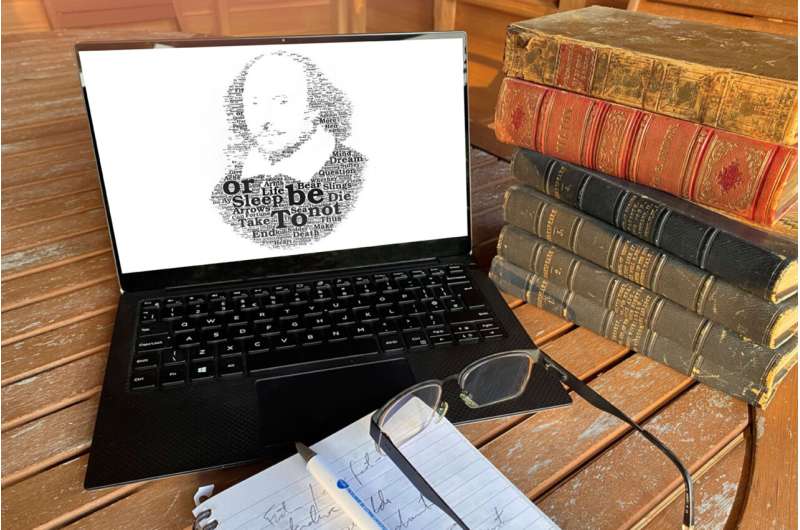
William Shakespeare used the word “dotage” to capture reduced mental ability (as in being blindly in love) rather than as a quaint term for old age, “successes” were really outcomes—one could talk of a “bad success”—and it turns out, the word “bastard” back then most often referred to a flower that was genetically hybrid.
A new dictionary, a verbal treasure trove of the nuances and uses of Shakespeare’s words, is published this week.
While “dinner” was preferred by Shakespeare for what we might think of as lunch (although his contemporaries used it to refer to an evening meal), “beef,” as today, was strongly associated with the English, but particularly the lower ranks (it was thought to reduce intelligence).
And while fish was not only considered inferior to red meat, it was also considered to be “decidedly dodgy,” being associated with Catholicism or sex.
This new research by Lancaster University sheds light on the times with the publication of The Arden Encyclopedia of Shakespeare’s Language, to be published by Bloomsbury on August 24.
Its publication comes after 25 years of preparation, a team of up to 25 researchers, and seven years of hard work.
The project, conceived and led by Jonathan Culpeper, a Professor of English Language and Linguistics at Lancaster University, will result in a unique five-volume reference work, detailing and illuminating Shakespeare’s rich language.
A key feature of the project is that is uses corpus linguistics, the computer-aided analysis of massive datasets of language, to provide evidence-based accounts of Shakespeare’s language.
The new work covers not just Shakespeare’s words; the volumes will also reveal the linguistic thumbprints of plays and characters in plays, the articulation of themes such as love and death, and the networks of character interaction.
This month sees the publication of the first two volumes, which together constitute a dictionary.
Professor Culpeper, who worked together with Dr. Andrew Hardie and Dr. Jane Demmen, also from Lancaster University, on these volumes, said, “This is the first fully corpus-based dictionary of Shakespeare’s language and most comprehensive since Alexander Schmidt’s in the early 1870s.”
Volumes 1 and 2 comprise 20,000 word-entries gleaned from a million-word corpus of Shakespeare’s plays and compared with a matching million-word corpus of contemporary plays, along with huge corpus of 320 million words of various writings of the period.
Professor Culpeper said, “So why the comparisons? Other dictionaries define Shakespeare by looking just at Shakespeare. The result is a bit circular—Shakespeare’s words had lives amongst his contemporaries, and we pay attention to that, along with what they are doing in Shakespeare’s plays.”
It is obvious perhaps that “wicked” occurs densely in religious texts of the time, but who would have guessed that of the highly frequent word “ourselves”?
Frequent words such as “alas” or “ah” are revealed to be heavily used by female characters, doing the emotional work of lamentation in the plays (especially histories).
“Frequent words,” Professor Culpeper comments, “often excluded from previous Shakespearean dictionaries, have a wood for the trees problem.”
The dictionary also surveys the infrequent, flagging words that occur but once in Shakespeare, such as “bone-ache” (syphilis) or “ear-kissing” (whispering, though other writers used it for flattering), and words that seem to have their earliest occurrence in Shakespeare (including the decidedly modern sounding “self-harming”).
The Encyclopedia is written for a general audience. The remaining volumes will be published over the next three years.
Provided by
Lancaster University
Citation:
New ‘verbal treasure trove’ dictionary captures nuances and uses of Shakespeare’s words (2023, August 23)
retrieved 23 August 2023
from https://phys.org/news/2023-08-treasure-trove-dictionary-captures-nuances.html
This document is subject to copyright. Apart from any fair dealing for the purpose of private study or research, no
part may be reproduced without the written permission. The content is provided for information purposes only.


